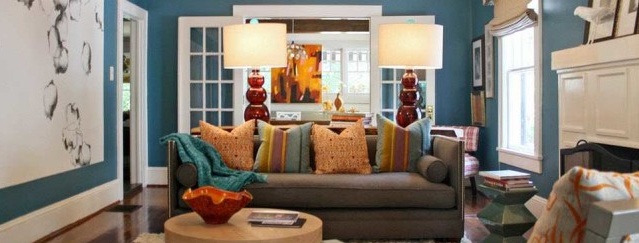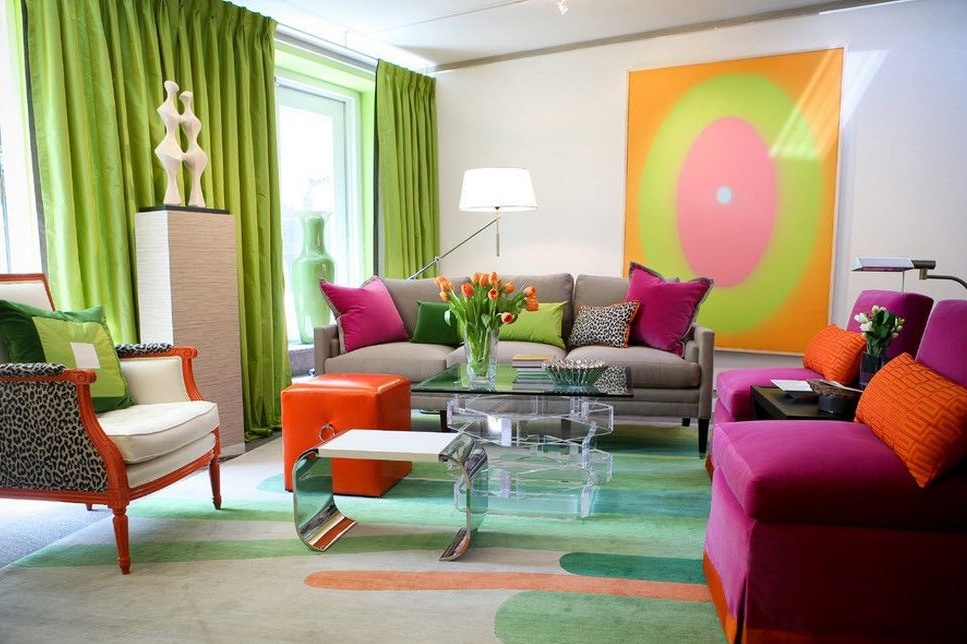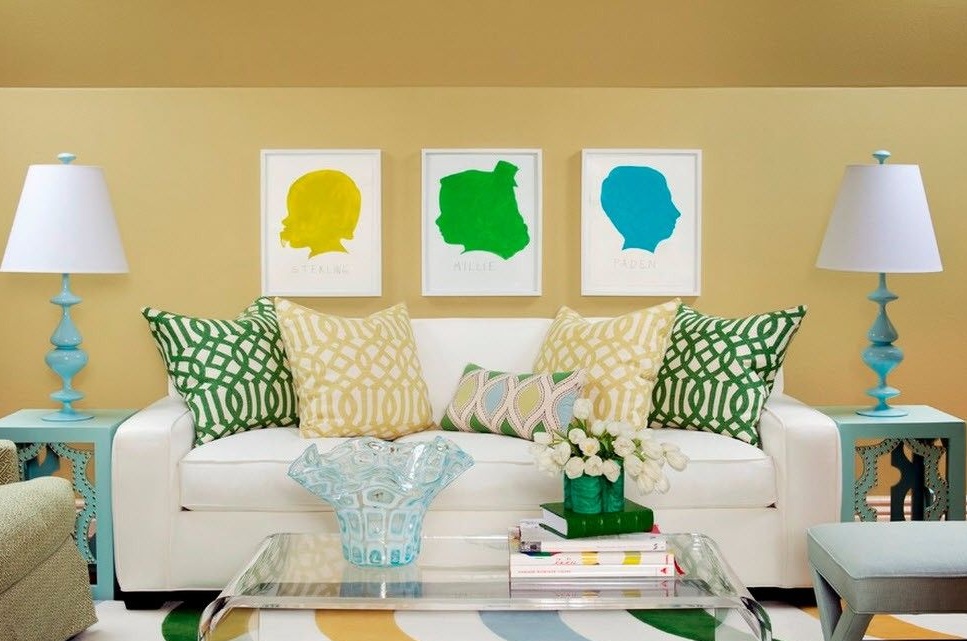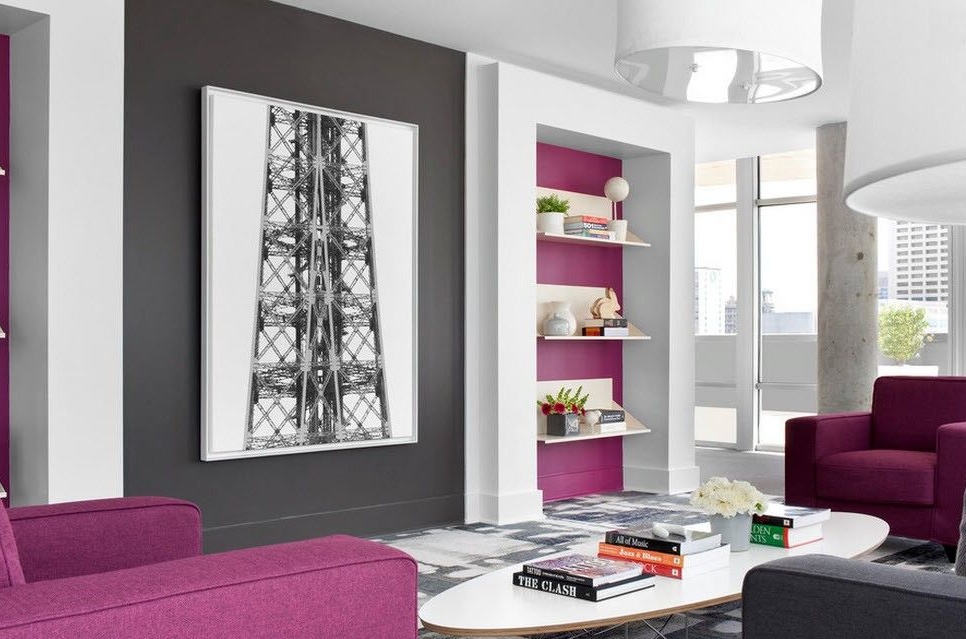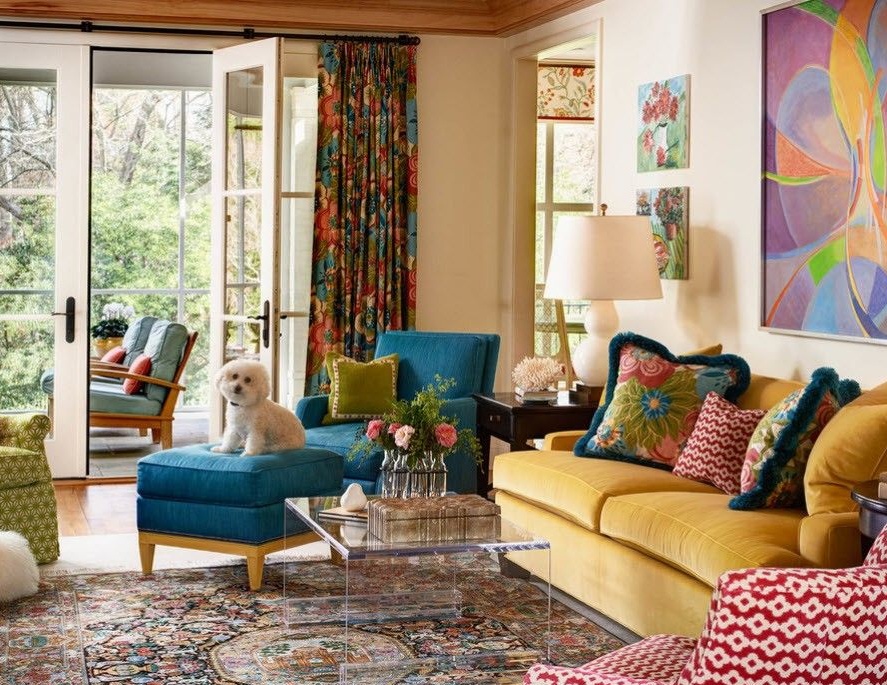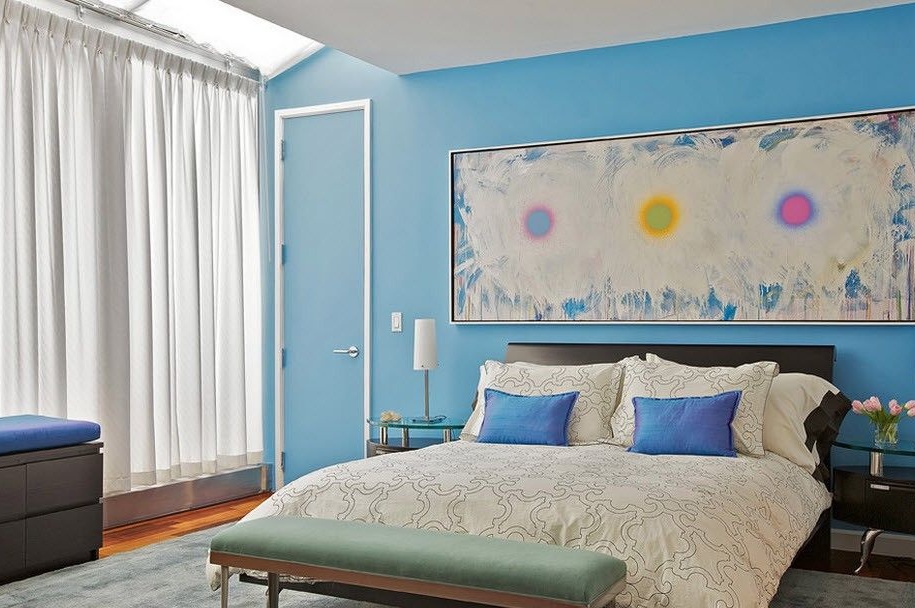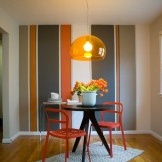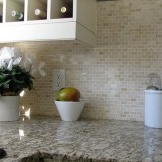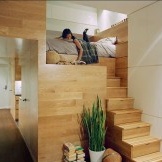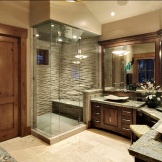Lessons of magic - paints in the interior
Relaxing effect of green, calming blues blues, energy boost red - all this is the result of a decision made when choosing a color scheme for a home or office space. the fruit of the color scheme of the interior can bring chaos to our living space if you choose your favorite color scheme, without thinking about how it will work. It is very important to keep in mind some knowledge of how color enhances the sense of well-being, transforms the perceived space to make it more or more comfortable, and how it illuminates and energizes the dark and frozen corners of the inner space of the human soul.
What you need to analyze, choosing the color schemes of the interior. Interior decoration guidelines include:
- The purpose of the use of the premises, whether it is a private or public place;
- Landscaping outside;
- Sympathies and dislikes regarding color and style;
- Room lighting (natural and artificial light sources);
- Furniture, interior items and accessories.
Creating an image of the interior
Neutral colors (gray, beige, cream) are great for creating a background of space, that is, for walls and ceilings. They create a perception of the space in the room, combined with bright pieces of furniture and draperies. For example, a medium tone of beige on the walls and a white ceiling combined with the deep color of the wooden floor will add a touch of tradition.
Search for patterns: a model or dominant color in furniture found in luxurious fabrics or works of art. For example, an existing oriental rug may give some clue about the style and color scheme of the entire interior. Varying the colors of the color wheel, individual details of the coordinated structure of space are selected.
Choice of color schemes
Choosing among different color schemes will be easier if you use the color wheel. In this case, you can apply a monochrome color scheme for the entire room or create a contrasting color combination. At the same time, complementary colors, located on the color wheel next to each other, for example, yellow and purple, create a dramatic and bold effect, but it is better suited for a private bedroom than for an office interior.
As a rule, no more than three colors are used in interior color schemes, located next to each other on the color wheel, or in a combination of cold and warm colors, such as blue and green.
Triple color schemes use three shades placed sequentially or at equal distances from each other. Ideally, in the design of the space, the proportion is used:
- Dominant color - 60%;
- Auxiliary color - 30%;
- Contrast color - 10%.
This allows you to balance sensations and arouses interest in penetrating into space.
Understanding the effect of color
Colors help the perception of the concepts of space and design. For example, with a red color scheme you can create a deep and hot atmosphere of a dark spell. On the other hand, the combination of muted blue, gray and brown colors creates a feeling of coolness and tranquility. Cream and pink tones form a warm and alluring desire to touch the space.
Despite the fact that what has already been said can help make the right choice of color scheme, personal preferences remain the most important with regard to style and color, they create feelings of comfort and well-being in each individual case.
The choice of paints for home decor
To completely change the interior of the house - this is the main task of the color palette of colors. For example, the contrasting color of the right edge of the space not only creates the mood of the room, but also gives it some personality.The key is how perfect the color is for the selected image and how well it blends with its other elements. Instead of choosing the usual and safe from the point of view of perception of space, why not spend a little time to explore new possibilities and choose original color combinations.
But first of all, you need to consider the picture of your financial budget. After a certain figure settles in the mind, it is necessary to clarify some other things. In particular, what is the final effect of dreams: whether it will be a desire to bring a note of eccentricity to the big picture, or still dwell on the traditional conservative perception of colors. Once a specific decision has been made, you can proceed to the next step.
Namely, to study some of the basics of paints and their colors. In the modern market there are so many brands and types of paints that it is quite possible to choose a brand that matches the current budget. At the same time, it is also necessary to give preference to the type of finish: matte, satin, glossy, semi-gloss, "egg shell".
Completing the color scheme is the most important step that will determine the entire look of the decor. This must be done very carefully.
Color Scheme Completion
Before dwelling on a specific color scheme, you must also consider the following:
- The relationship of the room with the rest of the house;
- Existing color schemes in the house;
- Existing furniture and furniture that will be installed in the room;
- Draperies, carpets, etc., existing and those that are planned to be included in the interior.
And, in addition, it is necessary to determine the area of the room.
Choosing a color scheme does not hurt to check how this or that paint will look under different lighting conditions, because what is attractive in the daytime may look dull or even unpleasant when the sun sets. And for this, it is better to select a small section of the room and paint it in the selected color. It is important to mention here that when drying, the paint becomes two shades darker, so you also need to check how the paint will look after drying.
Another important aspect of the color scheme of a room’s space is its combination with the color schemes of other rooms. In order to check this, it is enough to look at the open door from different points of view what space is visible from the adjacent room. You must have at least two common colors in the color schemes of adjoining rooms.

